Filter by
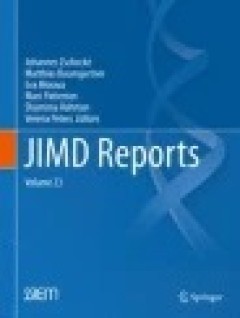
JIMD Reports, Volume 23
JIMD Reports publishes case and short research reports in the area of inherited metabolic disorders. Case reports highlight some unusual or previously unrecorded feature relevant to the disorder, or serve as an important reminder of clinical or biochemical features of a Mendelian disorder.
- Edition
- -
- ISBN/ISSN
- 978-3-662-47466-2
- Collation
- -
- Series Title
- -
- Call Number
- -
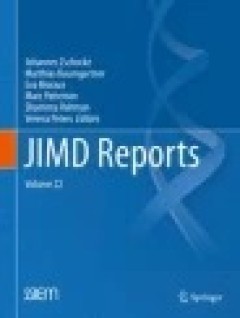
JIMD Reports, Volume 22
JIMD Reports publishes case and short research reports in the area of inherited metabolic disorders. Case reports highlight some unusual or previously unrecorded feature relevant to the disorder or serve as an important reminder of clinical or biochemical features of a Mendelian disorder.
- Edition
- -
- ISBN/ISSN
- 978-3-662-47453-2
- Collation
- -
- Series Title
- -
- Call Number
- -
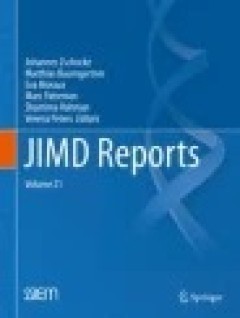
JIMD Reports, Volume 21
JIMD Reports publishes case and short research reports in the area of inherited metabolic disorders. Case reports highlight some unusual or previously unrecorded feature relevant to the disorder, or serve as an important reminder of clinical or biochemical features of a Mendelian disorder.
- Edition
- -
- ISBN/ISSN
- 978-3-662-47172-2
- Collation
- -
- Series Title
- -
- Call Number
- -
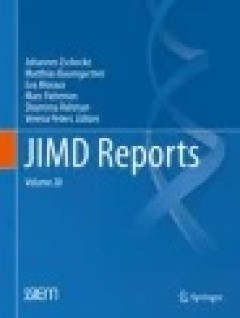
JIMD Reports, Volume 20
JIMD Reports publishes case and short research reports in the area of inherited metabolic disorders. Case reports highlight some unusual or previously unrecorded feature relevant to the disorder or serve as an important reminder of clinical or biochemical features of a Mendelian disorder.
- Edition
- -
- ISBN/ISSN
- 978-3-662-46700-8
- Collation
- -
- Series Title
- -
- Call Number
- -
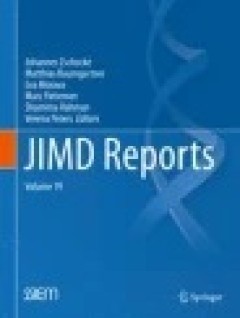
JIMD Reports, Volume 19
JIMD Reports publishes case and short research reports in the area of inherited metabolic disorders. Case reports highlight some unusual or previously unrecorded feature relevant to the disorder, or serve as an important reminder of clinical or biochemical features of a Mendelian disorder.
- Edition
- -
- ISBN/ISSN
- 978-3-662-46190-7
- Collation
- -
- Series Title
- -
- Call Number
- -
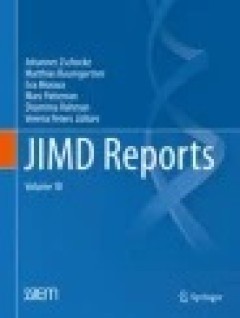
JIMD Reports, Volume 18
JIMD Reports publishes case and short research reports in the area of inherited metabolic disorders. Case reports highlight some unusual or previously unrecorded feature relevant to the disorder, or serve as an important reminder of clinical or biochemical features of a Mendelian disorder.
- Edition
- -
- ISBN/ISSN
- 978-3-662-44863-
- Collation
- -
- Series Title
- -
- Call Number
- -
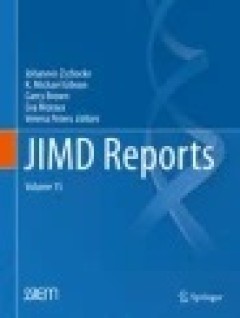
JIMD Reports, Volume 15
JIMD Reports publishes case and short research reports in the area of inherited metabolic disorders. Case reports highlight some unusual or previously unrecorded feature relevant to the disorder or serve as an important reminder of clinical or biochemical features of a Mendelian disorder.
- Edition
- -
- ISBN/ISSN
- 978-3-662-43751-3
- Collation
- -
- Series Title
- -
- Call Number
- -
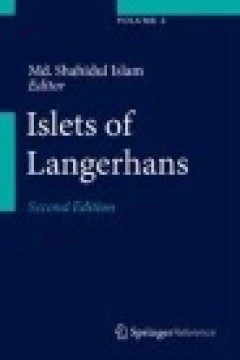
Islets of Langerhans
This book contains critical background information, and recent advances made in essentially all areas of islet research. It is a major reference book, the first of its kind, for islet researchers, and diabetes researchers. Anybody, including the experts, and the beginners, interested in the study of islet physiology, and diabetes, will find this book extremely useful. The book is robust in its …
- Edition
- -
- ISBN/ISSN
- 978-94-007-6685-3
- Collation
- -
- Series Title
- -
- Call Number
- -

Essays on the History of Respiratory Physiology
This book consists of 23 essays about prominent people and events in the history of respiratory physiology. It provides a first-hand chronicle of the advancements made in respiratory physiology starting with Galen and the beginnings of Western physiology. The volume covers every aspect of the evolution of this important area of knowledge: pulmonary circulation, Boyle’s Law, pulmonary capillar…
- Edition
- -
- ISBN/ISSN
- 978-1-4939-2362-5
- Collation
- 115 b/w illustrations, 14 illustrations in colour
- Series Title
- -
- Call Number
- -
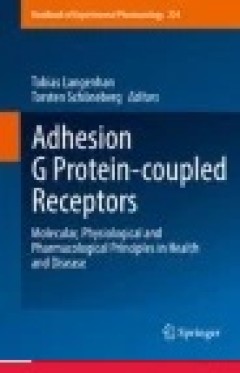
Adhesion G Protein-coupled Receptors: Molecular, Physiological and Pharmacolo…
Latest research on Adhesion GPCRs has unearthed surprising revelations about the events that govern the signal transduction of these receptor molecules and the cellular and organ requirements for these signals. Unexpected and unprecedented findings suggest that Adhesion GPCRs constitute a group of receptors that sense mechanical stimuli and transcode them into metabotropic signals through the a…
- Edition
- Ed. 1
- ISBN/ISSN
- 978-3-319-41523-9
- Collation
- XIV, 403
- Series Title
- Handbook of Experimental Pharmacology
- Call Number
- 615 ADH a
 Computer Science, Information & General Works
Computer Science, Information & General Works  Philosophy & Psychology
Philosophy & Psychology  Religion
Religion  Social Sciences
Social Sciences  Language
Language  Pure Science
Pure Science  Applied Sciences
Applied Sciences  Art & Recreation
Art & Recreation  Literature
Literature  History & Geography
History & Geography